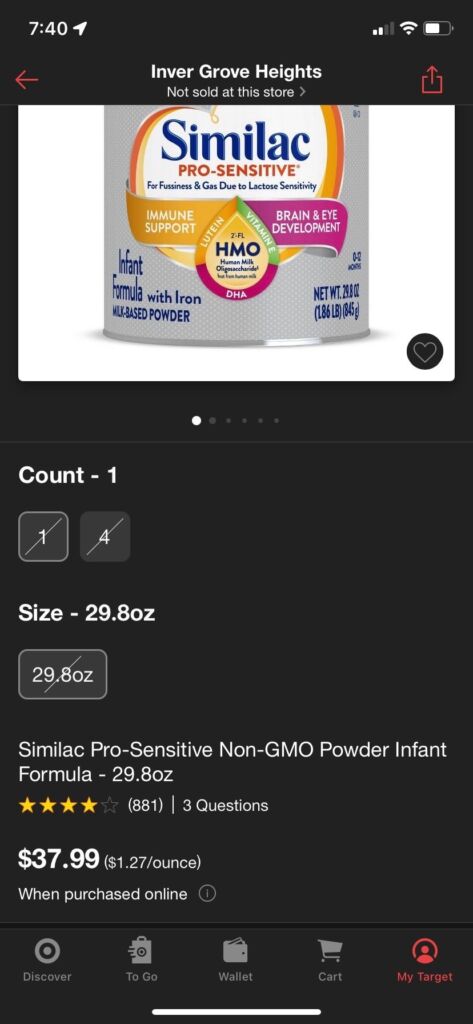‘Price gouging’ is not the problem: Target’s price of baby formula up $1 since August
I appeared on King Banian’s show on Business 1440 KYCR last week to discuss baby formula shortage. The Twin Cities is one of the worst affected metros, with an out-of-stock rate above 50%. On the show, I expressed skepticism that policymakers at the national and state level would do anything beneficial to solve this issue, primarily because they have no clue what is causing it. That prediction soon came to pass.
A bill in the Minnesota House — HF 844 — represents Democrats’ attempt to solve the formula shortage. It won’t. In fact, if anything it will make it worse.
The bill reads:
If the governor declares an abnormal market disruption a person is prohibited from selling or offering to sell an essential consumer good or service for an amount that represents an unconscionably excessive price.
‘Abnormal market disruption’ is defined as:
…a change in the market resulting from a natural or man-made disaster, a national or local emergency, a public health emergency, or an event resulting in a declaration of a state of emergency by the governor.
‘Essential consumer good or service’ is defined as:
…a good or service vital and necessary for the health, safety, and welfare of the public, including without limitation: food, water, fuel, gasoline, shelter, transportation, health care services, pharmaceuticals, and medical, personal hygiene, sanitation, and cleaning supplies.
And ‘unconscionably excessive’ is defined as:
…a gross disparity between the seller’s price of a good or service, offered for sale or sold in the usual course of business, during the 30 days immediately prior to the governor’s declaration of an abnormal market disruption and the seller’s price of the same or similar good or service after the governor’s declaration of an abnormal market disruption and the gross disparity is not substantially related to an increase in the cost of obtaining or selling the good or of providing the service. A gross disparity between the price of a good or service does not occur when the amount charged after the abnormal market disruption increased the price 30 percent or less.
So, for almost any reason the governor would have the power to control the prices of a wide variety of products. There is one major problem: there is no ‘price gouging.’

My daughter was born last February and we fed her formula. Looking at the receipts stored on my Target app, I can see that on August 21, 2021, we paid $36.99 for a 29.8 oz tub of Similac pro-sensitive. That was still the price when we last bought a tub on Feb. 1, 2022. Looking online now, you see that the same product costs $37.99 — an increase of 2.7% in nine months. Over the same period, prices generally have risen by 5.7%: not only have formula prices not been ‘gouged,’ but they haven’t even kept up with inflation.
This bill was a complete red herring that does nothing but demonstrate its author’s total ignorance of the reality of this crisis. It would not put a single container of baby formula on a shelf anywhere in Minnesota.